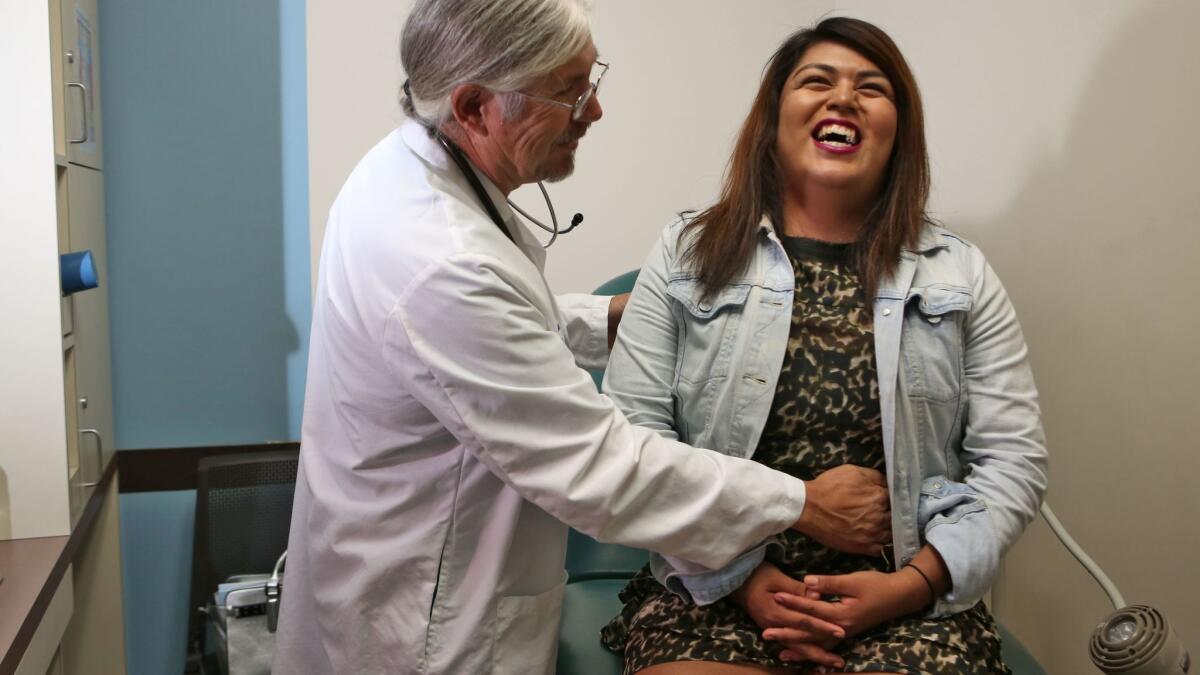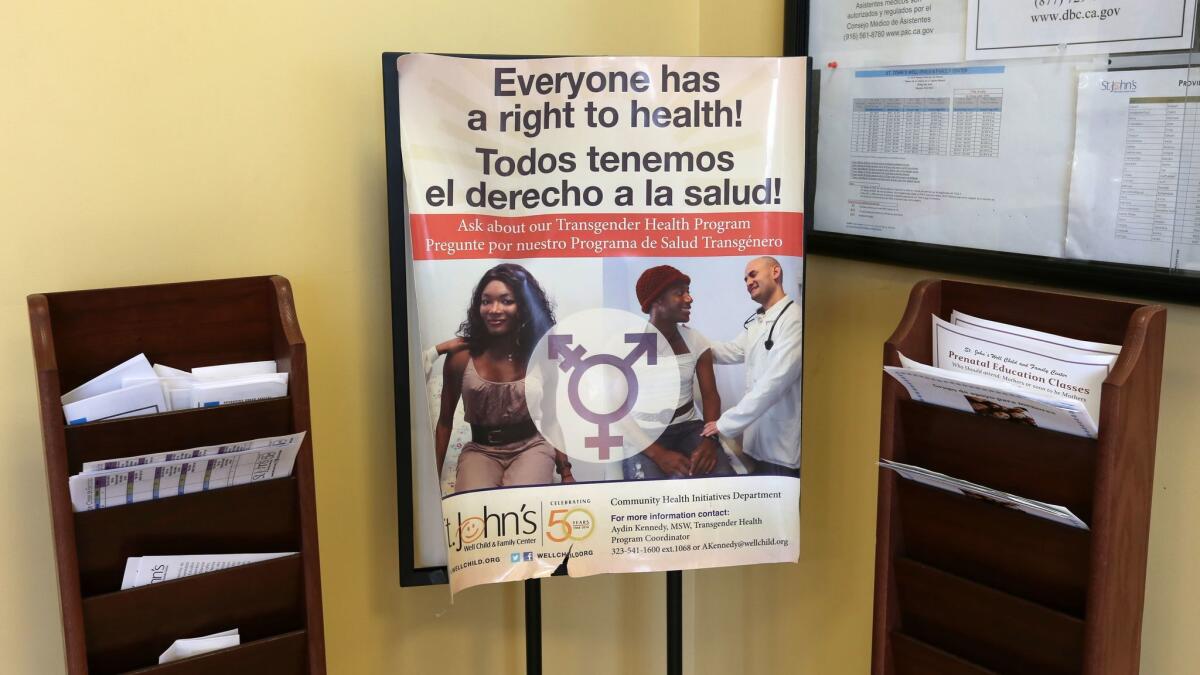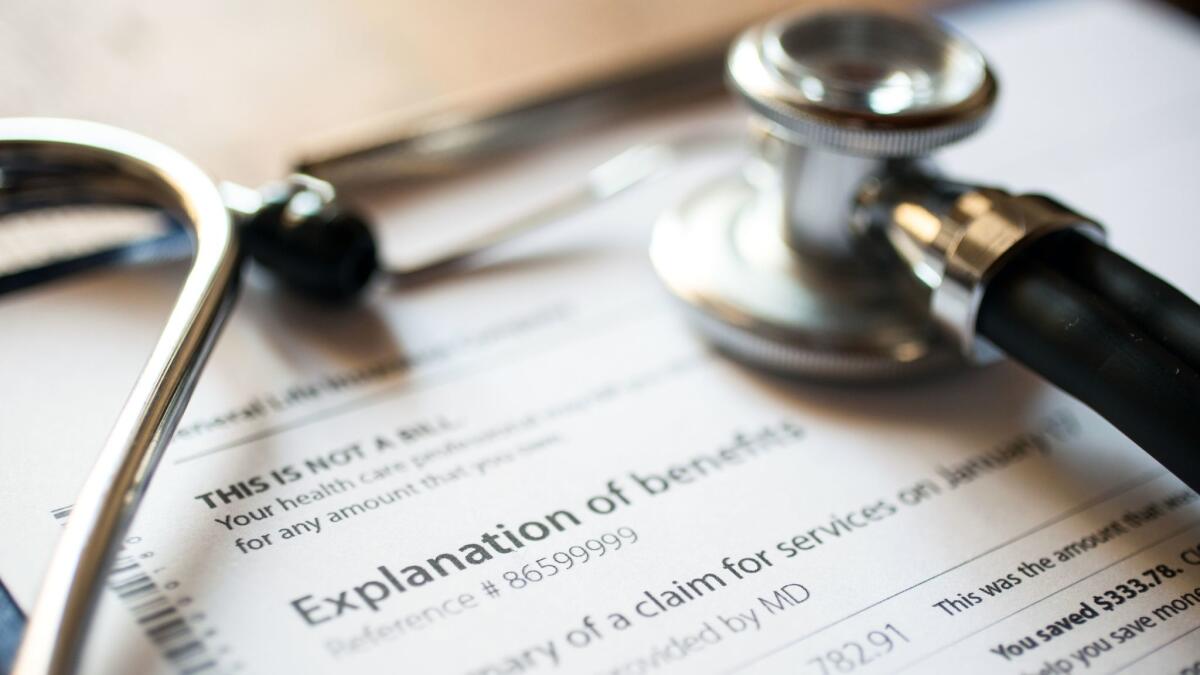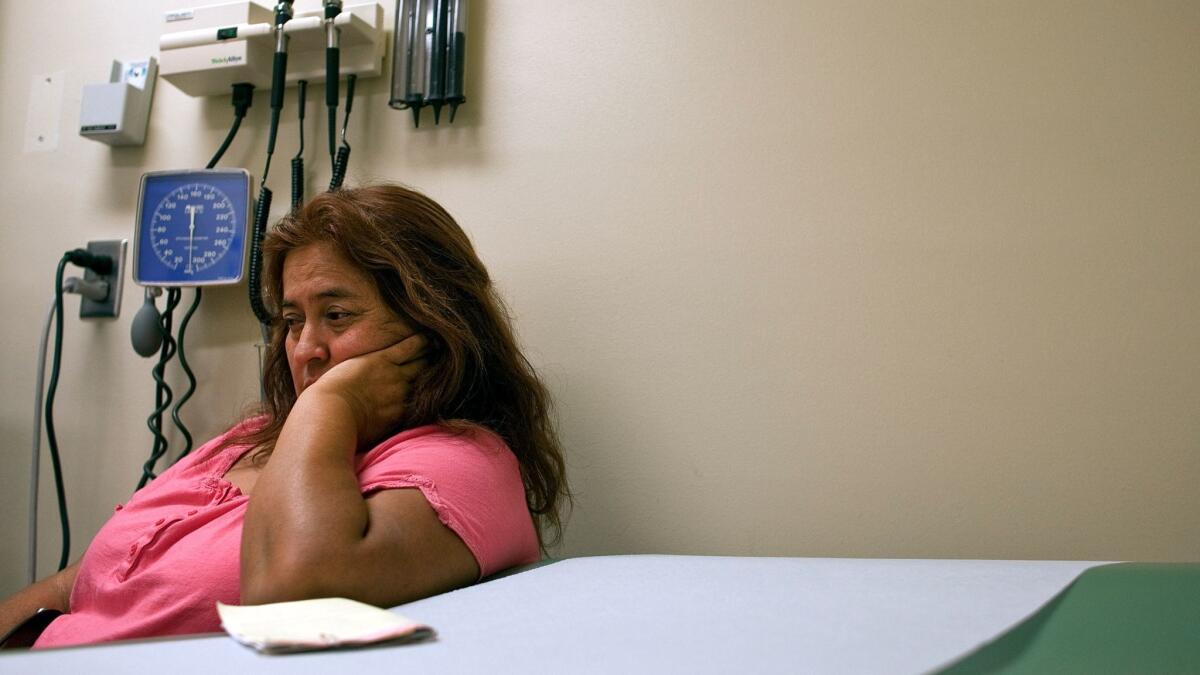Being transgender in America may be hazardous to your health, study shows

- Share via
Being transgender in America may be hazardous to your health.
A new report in JAMA Internal Medicine characterizes a variety of health disparities between people who are transgender (that is, their gender identity is not the same as their sex at birth) and people who are cisgender (their gender identity matches their sex at birth).
Spoiler alert: There are many.
The data come from the Behavioral Risk Factor Surveillance System, a health survey sponsored by the
Researchers from Brigham & Women’s Hospital and Beth Israel Deaconess Medical Center, both affiliated with Harvard Medical School in Boston, examined responses from 314,450 cisgender and 1,443 transgender interviewees. People who described themselves as transgender accounted for less than half of 1% of the entire sample.
Overall, the transgender people were younger, poorer, less white and more likely to be unemployed than their cisgender counterparts.
The researchers also found significant health differences between the two groups. Among them:
Transgender adults were less likely to describe themselves as healthy
The CDC asks Americans to describe their overall health as excellent, very good, good, fair or poor. The researchers reported that 29% of transgender adults rated their health as fair or poor, compared with 17% of cisgender adults.

Transgender adults were more likely to be overweight
Just under 66% of cisgender adults had a body mass index of at least 25, qualifying them as overweight. That may sound high, but it was significantly lower than the 72% share for the transgender adults.
Transgender adults were more likely to be uninsured
Nearly 21% of transgender adults lacked health insurance when they were surveyed. By comparison, only about 11% of cisgender adults did not have health insurance.

Transgender adults were more likely to let a health problem go untreated
More than 1 in 5 transgender adults said they had let a health problem fester because they couldn’t afford to get the necessary treatment. In contrast, 1 in 8 cisgender adults were in the same predicament.
Transgender adults were more likely to be depressed
Among the transgender adults who took the survey, 22.3% had been diagnosed with depression. That was significantly higher than the 18.4% of cisgender adults who got that diagnosis.

Transgender adults had more cognitive problems
When asked whether they had any problems with “concentrating, remembering or making decisions,” 10% cisgender and 18% of transgender adults answered yes.
The study doesn’t make the claim that being transgender is the reason for the health disparities. But the differences were too big to be due to chance.
The study authors noted that since these results were based on survey responses from only some of the states, they might not reflect the health status of transgender people across the country.
However, they were strong enough to make one thing clear, they wrote: “This study confirms that gender minority adults in the United States experience health disparities compared with their cisgender peers.”
Follow me on Twitter @LATkarenkaplan and "like" Los Angeles Times Science & Health on Facebook.
MORE IN SCIENCE
Immunotherapy drug opens a new era of precision medicine for cancer
Another casualty of climate change: A good night's sleep
What the DNA of the Zika virus tells scientists about its rapid spread




